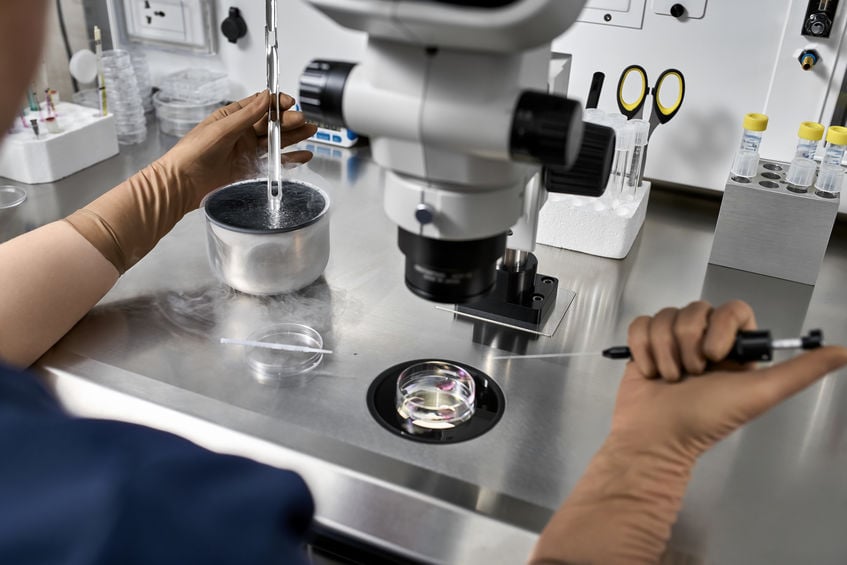The phrase third-party reproduction refers to the use of eggs, sperm, or embryos that have been donated by a third person (donor) to enable an individual or couple (intended recipient) to become parents. –As defined by the American Society for Reproductive Medicine
Types of Third-Party Reproduction
Third-party reproduction can take many forms, including, but not limited to:
- Donor sperm for single female or same-sex female couples to achieve pregnancy
- Donor sperm for heterosexual couples where a male partner does not have sperm due to a genetic or medical condition, such as prior cancer treatment
- Egg donation for women who have diminished ovarian reserve due to reproductive aging or a medical condition that has permanently lowered their egg supply
- Using a gestational carrier or gestational surrogate to carry a pregnancy for an individual or couple that lack a uterus (example: same-sex male couple), or
- for a woman who has undergone a hysterectomy or has a medical condition where pregnancy would be unsafe
- Receiving embryos donated from one patient to another, usually in the event that the genetic parents have surplus embryos after their family is completed
Special Requirements For Third-Party Reproduction
Overall, third-party reproduction cases can be the most complex treatments that fertility clinics perform. With the donation of eggs, sperm or embryos, there are strict FDA-mandated rules that must be followed to ensure that all parties involved are safe, informed and understand the risks and benefits, as well as the chances of success. The evaluation usually includes multiple lab tests, medical assessment, genetic screening and psychological counseling. In some circumstances, legal agreements between involved parties must be completed. Due to the regulations and complexity, it may take longer than traditional IVF cycles for a third-party pregnancy to be achieved.
RMIA offers a wide spectrum of third-party reproductive services, including the use of known and anonymous gamete (sperm and egg) donors and gestational carriers.





